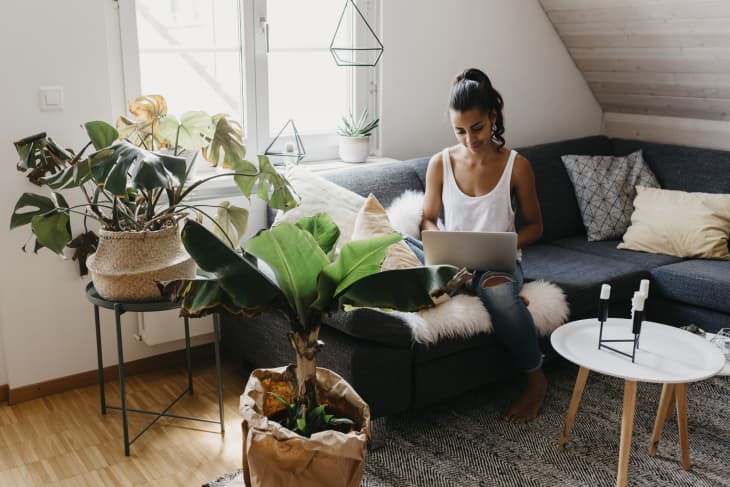4 DIY Ways to Feel Instantly Cooler Without AC

Whether you live in an Arizona suburb where the temperatures are always warm, your big-city apartment lacks an HVAC system, or the sweltering summer season wherever you live is in full force, chances are, you might find yourself feeling a bit sweatier and toastier than you’d like this summer. Thankfully, there are plenty of ways to cool off without AC.
Even better, you don’t need a big budget to find effective methods for keeping your home and your body cooler. With these expert-recommended ways to cool off when it’s really hot outside and inside, you’ll be fully equipped to endure the dog days of summer and beyond while feeling cool as a cucumber.
1. Take a cold plunge in the tub or shower.
Cold immersion therapy isn’t just for Gwyneth Paltrow and professional athletes. Turn your tub (or shower) into an ice-cold retreat by filling the bottom with ice and running water as cold as you can stand. Jump in for as long as you can handle (no need to go for more than several minutes), and emerge refreshed.
2. Make a DIY ice water fan.
This DIY ice fan hack works surprisingly well and takes less than 10 minutes to make. Simply stick a bowl of ice water in front of your fan to help circulate the cooler air. If you don’t have ice cubes on hand, you can add other frozen items, like frozen bags of vegetables, to your bowl in a pinch.
3. Cool off with a frozen washcloth.
Although it sounds a little odd, this tip works and will provide some relief especially when it’s too hot to sleep at night. (Take it from the author’s dad, who uses this trick to cool down in the Florida heat.)
- Take a washcloth and soak it in water.
- Wring and shape into a “U” and stick in the freezer.
- Once the washcloth is frozen, take it out and wrap it around your neck.
- The cooling will distribute to the rest of the body quickly and the cool lasts long enough for one to fall asleep.
4. Use other apartment staples to keep cool.
Megan Healy, MD, of Temple University Hospital, says you can look to your freezer staples and put ice packs (or bags of frozen veggies) in your armpits and groin area if you’re looking to cool down quickly. “The large blood vessels are close to the surface in those areas,” Healy explains, so your whole body will cool down faster by applying cool packs there. (For more everyday apartment items that’ll help you cool down, check out these 9 ideas.)
Note: If the temperature outside is above 90 degrees, it’s recommended that you go to a local cooling center or a friend’s home with AC. And always air on the side of caution. Young children, pregnant women, and the elderly are at even greater risk for heat-related illness. “If you are overheated and start to feel dizzy, nauseous, or experience muscle cramps, please call your doctor or visit your closest ER as soon as possible,” Healy says.